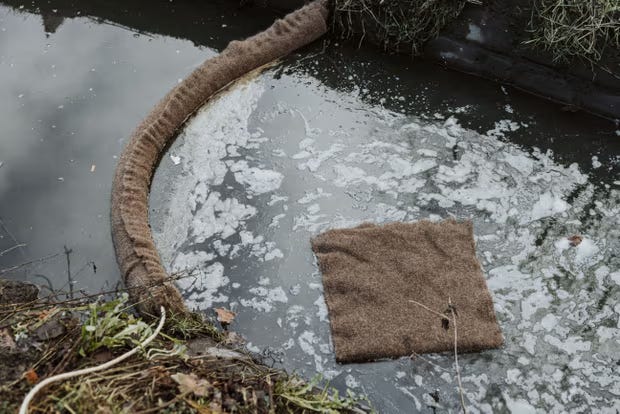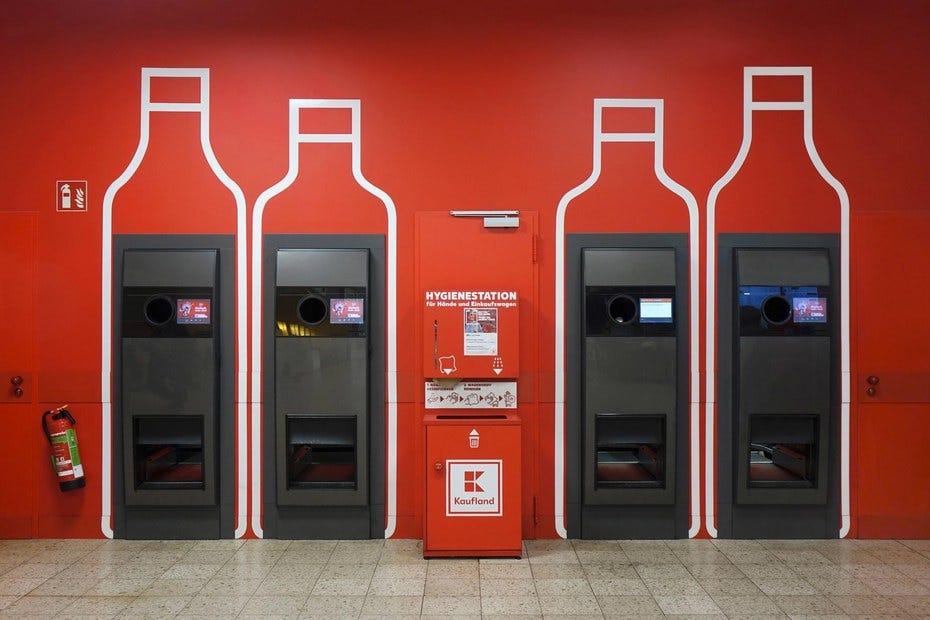Germany's 1st Zero Waste City
(absolutely remarkable story inside)
Drowning in waste?
It doesn't have to be way.
The German city of Kiel offers a beacon of hope.
Recently certified as the first Zero Waste City in all of Germany, Kiel has achieved a remarkable 70% reduction in waste per person, proving that a more sustainable future is possible.
Here's how they did it, and how your city can follow suit, with some additional considerations:
Kiel's Zero-Waste Masterclass:
Action Plan: Forget vague promises. Kiel tackled waste head-on with a comprehensive strategy. 107 concrete measures were implemented, focusing on:
Increased separate collection programs to ensure efficient recycling and composting.
Promoting a circular economy where materials stay in use for as long as possible, minimizing waste generation.
Waste Reduction Incentives: Financial responsibility can be a powerful motivator. Kiel's "pay-as-you-throw" system incentivizes waste reduction. Households pay based on the amount of landfill waste they generate, encouraging responsible disposal and mindful consumption.
Citizen Champions: Empowering residents is key. The "Zero Waste Household Challenge" inspired over 400 participants to embrace waste-free lifestyles. Practical tips and a strong sense of community fostered ownership and responsibility for a sustainable future.
Circular Businesses: Kiel recognizes the crucial role of businesses. Initiatives like "Unverpackt," Germany's first packaging-free store, exemplify their support for innovative circular business models. This holistic approach goes beyond consumers and empowers businesses to be part of the solution.
Continuous Improvement: The journey is dynamic. Kiel undergoes re-certification every three years, ensuring ongoing evaluation and adaptation. This allows them to implement new measures and strive for even higher levels of waste reduction.
Getting Specific: Examples from Kiel
Here are some specific examples of the innovative measures Kiel has implemented:
Cloth Nappy Grants: The city offers grants of up to €200 ($210) to encourage families to switch from disposable diapers to reusable cloth nappies. This significantly reduces waste generation and environmental impact.
Free Reusable Bags: Kiel provides free reusable bags for fruit and vegetables at events, promoting a shift away from single-use plastic bags.
Single-Use Ban: Public bodies in Kiel are banned from using single-use items like plastic cups and cutlery. This sets a strong example and encourages a culture of reusability.
Pay-as-You-Throw: The "pay-as-you-throw" system directly incentivizes waste reduction. Residents pay based on the weight of their landfill waste, encouraging responsible disposal and mindful consumption.
Waste Hair Transformation: In a unique initiative, Kiel even collects waste hair from hairdressers and repurposes it into a material that filters oil from water. This innovative approach demonstrates the potential for transforming waste into valuable resources.

Your City's Zero-Waste Future:
Kiel's success story is a blueprint for action.
Here's how your city can replicate their approach:
Advocate for Change: Push for comprehensive waste management policies that prioritize reduction, reuse, and recycling.
Support Circular Businesses: Encourage and patronize businesses that minimize waste and prioritize resource efficiency.
Get Involved Locally: Participate in community composting programs, farmers markets, and initiatives that promote waste reduction.
Reduce at Home: Be mindful of your consumption. Buy less, choose reusable items, and explore creative ways to upcycle and reduce waste generation.
Together, we can turn the tide on waste.
Let's learn from Kiel and build a future where landfills are a relic of the past.
The journey starts with one step, one action at a time.





